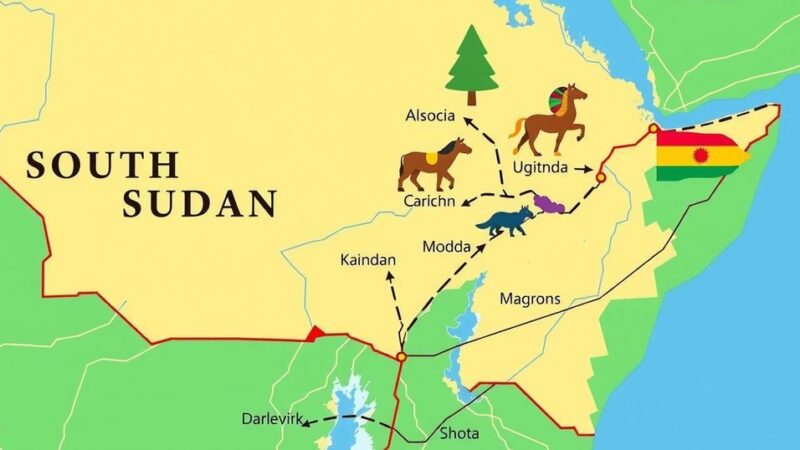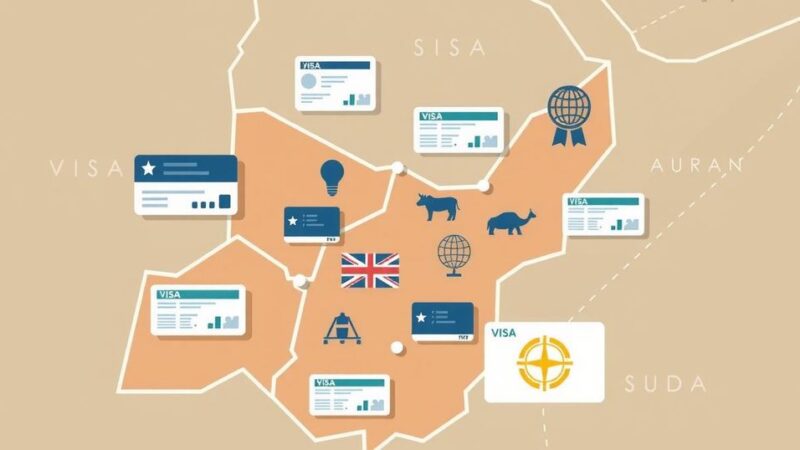Tulsi Gabbard, US Director of National Intelligence, is in India for a crucial three-day security meeting and the Raisina Dialogue. Her discussions with Indian leaders will likely center on Bangladesh and other security concerns. Gabbard’s visit highlights the importance of international collaboration against terrorism and regional issues.
Tulsi Gabbard, the United States Director of National Intelligence, is in India for a significant three-day meeting involving global security officials and the Raisina Dialogue. This visit marks her as the first senior official from the Trump administration to engage with Indian leaders. During her stay in Delhi, she is likely to discuss issues related to Bangladesh with Indian National Security Adviser Ajit Doval, as indicated by various media reports.
Gabbard’s itinerary includes meetings with top Indian officials, such as Prime Minister Narendra Modi. She is also set to deliver a keynote address at the Raisina Dialogue, a prominent conference focused on geopolitics and geo-economics, on March 18. While specifics of her schedule remain undisclosed, her visit is part of a broader multi-nation trip to the Indo-Pacific region, which includes engagements in Japan, Thailand, and France.
Upon her arrival in India, Gabbard participated in a closed meeting attended by intelligence and security officials from approximately 20 countries, chaired by NSA Ajit Doval. This conclave, associated with the Raisina Dialogue since its inception in 2022, emphasized intelligence sharing and collaboration against terrorism, alongside the implications of emerging technologies. Specific details regarding discussions were not publicly shared, but it was reported that concerns about anti-India activities, particularly from pro-Khalistan groups operating abroad, were raised by the Indian representatives.
Doval is anticipated to engage in additional one-on-one discussions with various intelligence and security officials during the conclave, known previously as the Raisina Security Dialogue. Notable countries represented at this meeting include Canada, the United Kingdom, Australia, New Zealand, and the United Arab Emirates. A potential meeting involving senior security personnel from the Five Eyes alliance—the US, UK, Canada, Australia, and New Zealand—was also mentioned.
Gabbard has limited her social media commentary during this visit, recently noting that the focus of her Indo-Pacific trip is to establish strong relationships and effective communication, which she considers essential for realizing President Trump’s vision of peace and prosperity. Previous discussions between Modi and former US President Joe Biden highlighted concerns regarding the treatment of Hindus in Bangladesh, a topic also addressed during Modi’s recent meeting with President Trump. Furthermore, Indian External Affairs Minister S. Jaishankar has raised the subject of Bangladesh in talks with senior US officials.
In conclusion, Tulsi Gabbard’s visit to India represents a significant step in US-India relations. The discussions at the Raisina Dialogue and the closed meetings with security officials underscore the ongoing collaboration in combating terrorism and addressing regional security challenges. Concerns regarding Bangladesh and the treatment of minority communities are also crucial topics being communicated between the nations. This engagement reflects a commitment to strengthening international partnerships for global stability and security.
Original Source: www.tbsnews.net






